
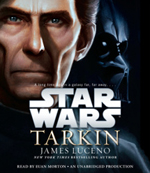 Tarkin: Star Wars
Tarkin: Star Wars
By James Luceno; Narrated by Euan Morton
Publisher: Random House Audio
Publication Date: 4 November 2014
[UNABRIDGED] – 9 hours, 27 minutes
Themes: / star wars / empire /
Publisher summary:
He’s the scion of an honorable and revered family. A dedicated soldier and distinguished legislator. Loyal proponent of the Republic and trusted ally of the Jedi Order. Groomed by the ruthless politician and Sith Lord who would be Emperor, Governor Wilhuff Tarkin rises through the Imperial ranks, enforcing his authority ever more mercilessly….and zealously pursuing his destiny as the architect of absolute dominion.
Rule through the fear of force rather than force itself, he advises his Emperor. Under Tarkin’s guidance, an ultimate weapon of unparalleled destruction moves ever closer to becoming a terrifying reality. When the so-called Death Star is completed, Tarkin is confident that the galaxy’s lingering pockets of Separatist rebellion will be brought to heel – by intimidation…or annihilation.
Until then, however, insurgency remains a genuine threat. Escalating guerrilla attacks by resistance forces and newfound evidence of a growing Separatist conspiracy are an immediate danger the Empire must meet with swift and brutal action. And to bring down a band of elusive freedom fighters, the Emperor turns to his most formidable agents: Darth Vader, the fearsome new Sith enforcer as remorseless as he is mysterious; and Tarkin – whose tactical cunning and cold-blooded efficiency will pave the way for the Empire’s supremacy…and its enemies’ extinction.
Tarkin is one of the first books in the rebooted Star Wars expanded universe. The story gives us a lot of Tarkin’s back story and how he came to be a Grand Moff of the Empire. The story started a bit slow but picked up as less back story and more plot took place. Tarkin is a very interesting character because of his intelligence and ruthlessness (he actually reminds me strongly of Grand Admiral Thrawn in some ways). Star Wars fans will like this book but I will say that it felt more like the prequels than the original trilogy.
The plot of the story isn’t a linear narrative and spends a lot of time giving flash backs of Tarkin’s youth. These flash backs give interesting perspective into how he thinks but also kind of disrupt the story happening in the present. The flash backs show that Tarkin isn’t just some plain old officer in the Empire but he has had his trials and tribulations to earn his place.
I think one large reason why I liked this book instead of “really liked” is how much the prequels are brought into the plot. Everyone who has seen the prequels saw the Death Star plans came from Geonosys and saw the younger version of Tarkin in the movies, so this story definitely has a place in the prequels…except I don’t really like the prequels.
On the audio side of things, Euan Morton brings a different style of narration to this story from what I’m used to in a Star Wars book. I think the idea is that he’d do well with a British accent to match that of Tarkin from the movies and he pulls it off well. All the usual music and sound effects are present as you’d expect and I still think they’re doing a better job with the use of music lately. I should also add that I don’t remember any annoying/repetitive/distracting background ambiance sounds as in some other Star Wars audio books.
Posted by Tom Schreck
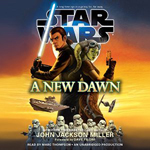 A New Dawn (Star Wars)
A New Dawn (Star Wars)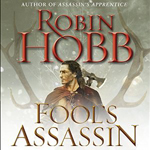 Fool’s Assassin (Fitz and the Fool #1)
Fool’s Assassin (Fitz and the Fool #1)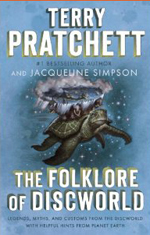 The Folklore of Discworld: Legends, Myths, and Customs from the Discworld with Helpful Hints from Planet Earth
The Folklore of Discworld: Legends, Myths, and Customs from the Discworld with Helpful Hints from Planet Earth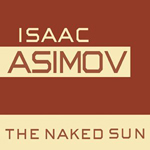 The Naked Sun (Robots #2)
The Naked Sun (Robots #2) Caves of Steel (Robots #1)
Caves of Steel (Robots #1)